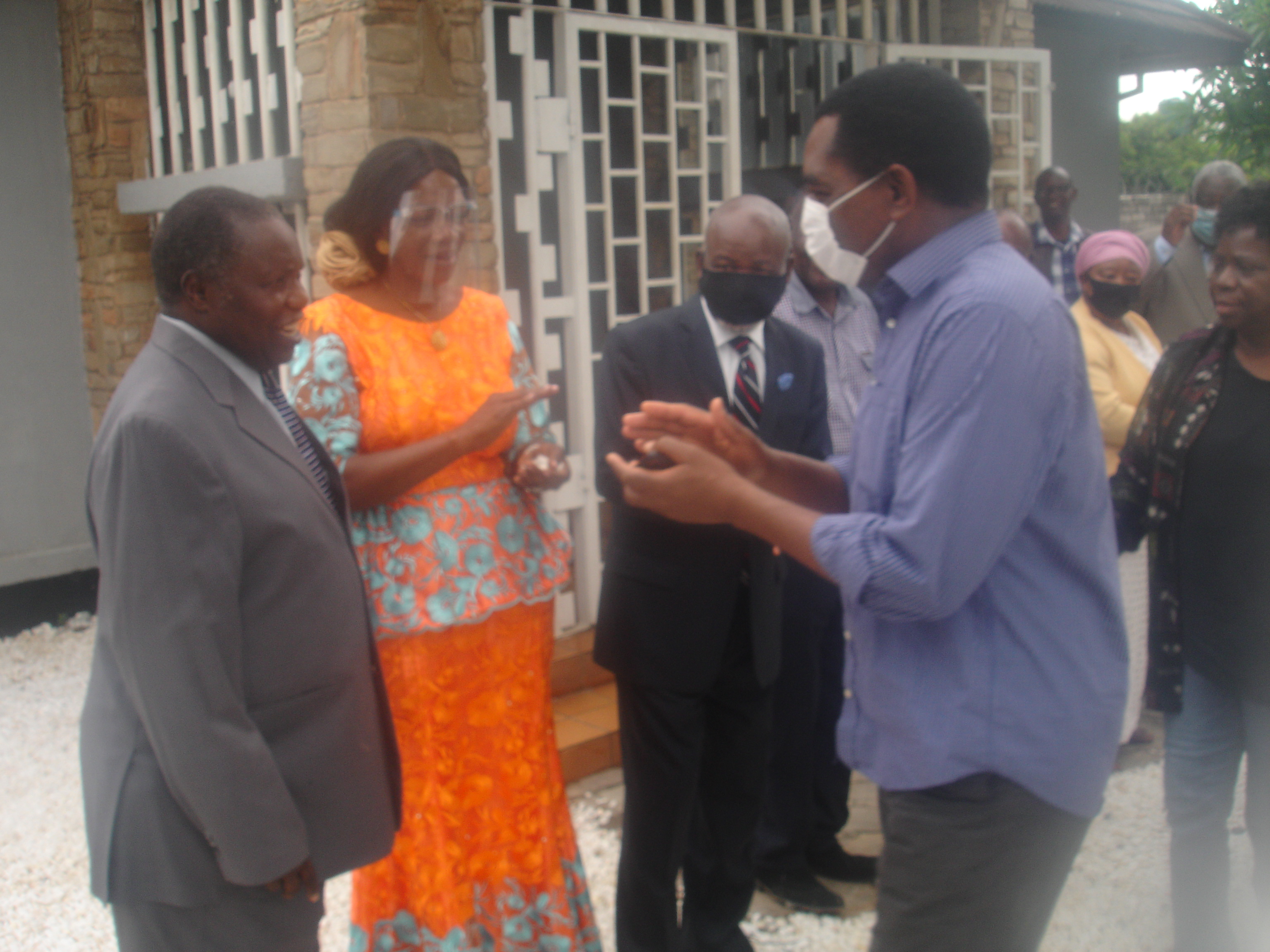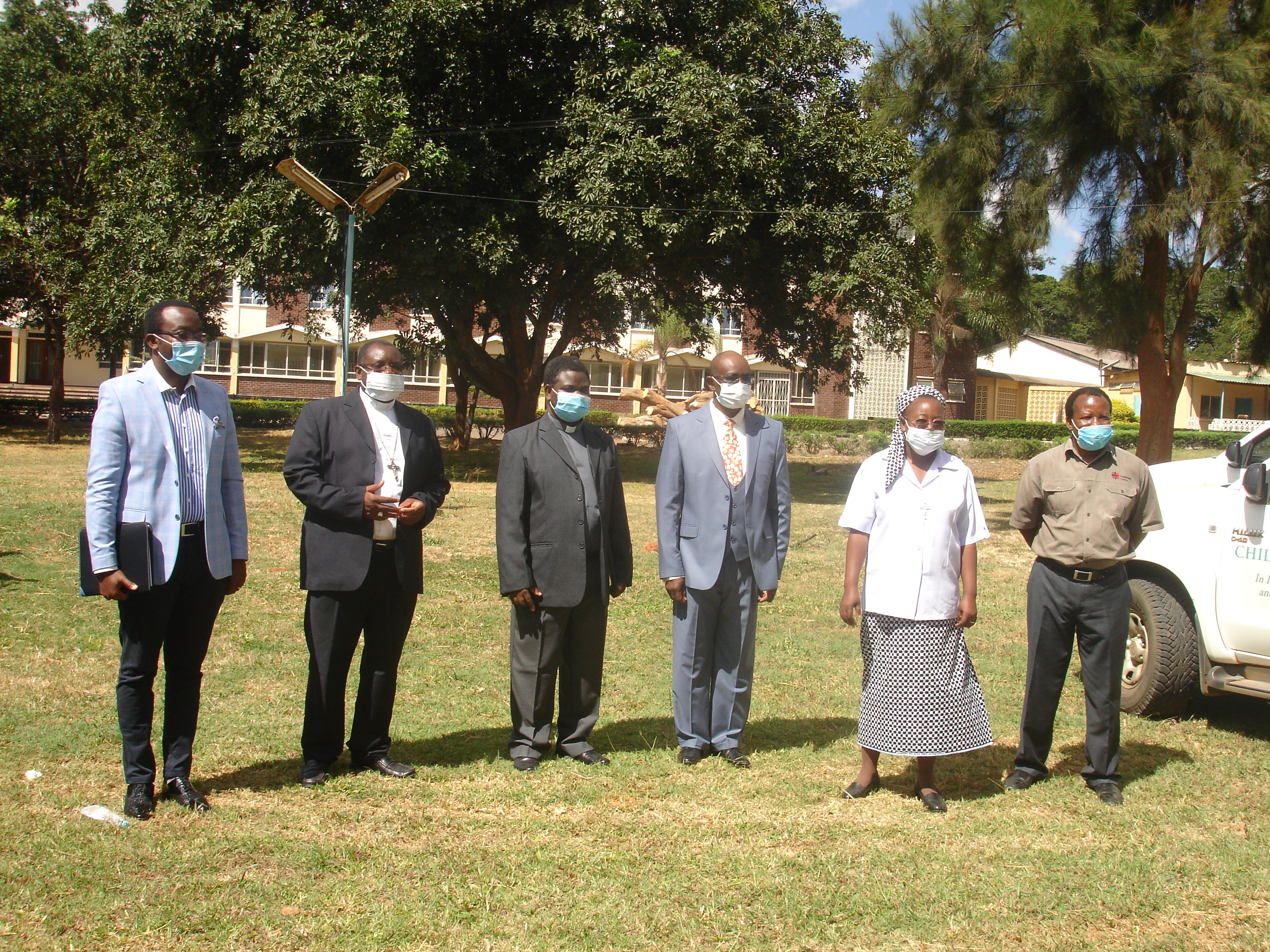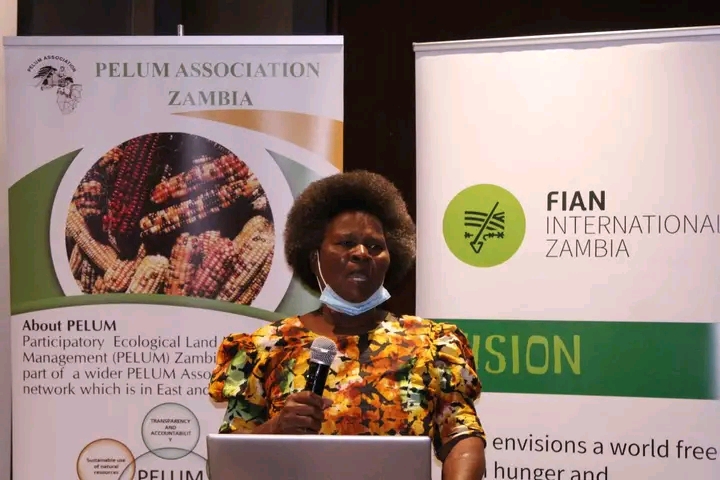Hichilema Recommends Sustainable And Smart Climate Agriculture ….For avoidance of doubt PELUM advises government to back this pronouncement with a policy and legal framework to protect indigenous seed for clean and health food
Notice: Undefined index: catFilterList in /home/zambi/public_html/wp-content/plugins/wp-likes/api.php on line 243

PELUM Zambia Country Coordinator Muketoi Wamunyima
Hichilema Recommends Sustainable And Smart Climate Agriculture
….For avoidance of doubt PELUM advises government to back this pronouncement with a policy and legal framework to protect indigenous seed for clean and health food

UPND President Hakainde Hichilema at Lusaka’s Rhodespark Secretariate Zambia on Thursday 10 December 2020 pix by Derrick Sinjela
By Francis Maingaila
Lusaka – 25 -05- 2022 – (Zambia24) – President Hakainde Hichilema has recommended the practice of sustainable and smart climate agriculture as a way of mitigating the impact of climate change on food and nutrition security in the country.
Speaking on Tuesday night when he addressed the nation on the eve of African Freedom Day, President Hichilema said food security is vital for the country and promised that his government will endeavor to always provide not only clean but also healthy food to citizens.
He said food security is not only a vital component of a peaceful and prosperous nation but also empowers citizens with long-term health and wellbeing.
And Participatory Ecological Land Use Management (PELUM), a network of Civil Society Organizations working with small-scale farmers in East, Central, and Southern Africa feels indebted to the Presidential recommendation for the practice of sustainable and smart climate agriculture in Zambia as a way of mitigating the impact of climate change on food and nutrition security in the country.
PELUM Zambia, Programs Officer, Wilfred Miga told Zambia24 in an exclusive telephone interview that the term sustainable and smart climate agriculture was vulnerable to misinterpretation by some agriculture advocates that mistake it for intensive use of mechanization and chemicals for high yield of food.
Miga, however, was consoled by the clarification President Hichilema made when he said his government will endeavor to provide clean and healthy food to people.
He explained that the only form of sustainable and smart climate agriculture which provide clean and healthy food to people the world over was agroecology which he said was a combination of not only research, education, and action but also change that brought sustainability to the ecological, economic and social aspects of food systems which are increasingly seen as an approach that can bring the much needed transformation to food systems.

PELUM Zambia, Programs Officer, Wilfred Miga
Miga said there was substantial evidence to prove that agroecological practices, including farm diversification and organic agriculture, can make a significant contribution towards climate adaptation and mitigation targets through food systems.
He explained that agroecology can play a major role in climate change adaptation and mitigation but this needs to be backed by some form of legislation to support the cause.
He also emphasized the need for the government to introduce a policy and legal framework that will protect the indigenous seed and food systems to ensure clean and health food.
He said the right of farmers to grow and share a variety of indigenous seeds should not be taken away by some laws being pushed by multinational companies and other powerful people.
“These seeds belong to our farmers and they have been passed on from generation to generation, given to them by God himself,” Miga explained.
He suggested that farm diversification has the strongest body of evidence on the impacts of climate change adaptation, which included positive impacts of diversification on crop yield, pollination, pest control, nutrient cycling, water regulation, and soil fertility.
He said agroecology was a necessary tool that provides more climate change adaptation and mitigation than conventional agriculture by emphasizing locally relevant solutions, participatory processes, and co-creation of knowledge that supported farmers’ capacity to adapt to local conditions.
He observed that some agroecological practices, including agroforestry, have positive impacts not only on biodiversity, water regulation, soil carbon, nitrogen and fertility, and extreme temperature but also in regulating pest, water, nutrient, and supporting services.
He said adopting agroecological practices will not only contribute towards the attainment of the United Nations Sustainable Development Goal (SDG2) but will also offer solutions to food insecurity.
He advised the government not only to increase investment for research on agroecology’s resilience to extreme weather events and climate change mitigation outcomes but also in research to analyze approaches aligned with agroecology relative to other agriculture development approaches, across all scales and regions, for outcomes in multiple dimensions and their trade-offs, including cost-effectiveness.
Similarly, Environment, Food Sovereignty, and Climate Justice Activist, Simon Mwamba regretted the lack of data or scenarios to justify the impacts of agroecological transitions on economic development
Mwamba told Zambia24 in another telephone interview that improving investment in agroecology for climate change will require long-term funding modalities, outcome target setting that includes environmental services and climate benefits, and systemic change and incentives to build farmer capacities.
He said key elements of exiting agricultural development programs are not only to increase support for agroecology but support for climate change outcomes.
According to Mwamba, this can be done by engaging with local knowledge through participatory and educational approaches that are effective at adapting technologies to local contexts, thereby delivering improved adaptation and mitigation.

Zambia Humanitarian Actors Platform Coordinator Simon Mwamba
Rather than treating climate change adaptation and mitigation as co-benefits, Mwamba suggested food systems must be actively managed for climate change benefits.
And Caritas Zambia expressed happiness that the Zambian government has finally begun to speak the same language advocates of clean and healthy food have been speaking all along.
Former Executive Director Eugene Kabilika told Zambia24 in an interview that the initiative president Hakainde Hichilema has taken to encourage the adoption of farming techniques that are environmentally friendly is welcome.
Kabilika said Zambia urgently and progressively, there is need to first move towards adopting agroecology principles for a sustainable food system and climate change adaptation.
Kabilika said agroecology was a better tool that will help Zambia to make a shift from chemical intensive industrial agriculture to ecologically intensive organic farming, with fantastic benefits for small scale farmers.

C and S Investments Ltd Representative George Chellah, Bishop Evans Chinyemba,, ZCCB SG Fr Cleophas Lungu and Caritas Zambia Executive Director Eugene Kabilika Wed 22 April 2020 pix by Derrick Sinjela
He said the current practice where farmers are required to use hybrid seeds supported with chemicals to sustain agriculture was not only expensive but has the potential to destroy the soils.
He observed that agroecology was cheap and crops grown from organic manure are far more superior in nutrition content than crops grown using chemical fertilizers.
Copyright – Zambia24

PELUM Zambia is promoting sustainable agriculture























